Doctor of Philosophy (PhD)
Dr Assad Zahid
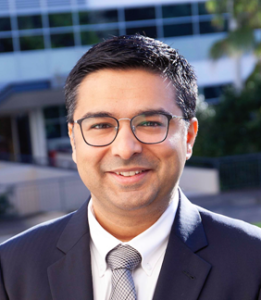
Thesis title: Competency in general surgical training
Topic: Surgical training and colorectal surgeons
Collaboration: Surgical Outcomes Research Centre (SOuRCe), Department of Colorectal Surgery at RPA
Dr Zahid is a colorectal and general surgeon at the Campbelltown Hospital whose thesis will focus on achieving competency in surgical training by (i) Investigating barriers to implementation of competency based training; and (ii) Evaluating the effectiveness of implementing a framework protocol to allow the effective delivery of competency based surgical training.
Publications arising from this thesis:
- Zahid A, Hong J, Young CJ. Surgical supervisor feedback affects performance: A blinded randomized study. Cureus. 2017 May 25;9(5):e1276. doi: 10.7759/cureus.1276.
- Zahid A, Hong J, Young CJ. Coaching experts: Applications to surgeons and continuing professional development. Surg Innov. 2018 Feb;25(1):77-80. doi: 10.1177/1553350617751450.
- Zahid A, Rajan V, Hong J, Young CJ. Surgical competencies required in newly commencing colorectal surgeons: An educational and training spectrum. Med Sci Educ. 2020 Jun 11;30(3):1043-1047. doi: 10.1007/s40670-020-01005-z.
- Zahid A, Miskovic D. Proctorship in minimally invasive colorectal surgery. Clin Colon Rectal Surg. 2021 May;34(3):186-193. doi: 10.1055/s-0040-1722765.
Mr Sascha Karunaratne

Thesis title: Decision-making in total knee arthroplasty
Topic: Decision-making, knee arthroplasty and osteoarthritis
Collaboration: Surgical Outcomes Research Centre (SOuRCe), Department of Orthopaedic Surgery at RPA, The University of Sydney, Bond University, RPA Institute of Academic Surgery
Mr Karunaratne is a physiotherapist and early career researcher whose thesis will focus on decision-making in patients and healthcare providers when considering the need for total knee arthroplasty by: (i) Evaluating the outcomes of surgeon decision-making for patients presenting seeking an opinion regarding knee arthroplasty; (ii) Identifying and ranking the primary objectives patients have prior to knee arthroplasty and evaluating if health professionals are able to recognise this hierarchy of patient goals; (iii) Developing an evidence-based decision-making tool based on the view of patients and healthcare professionals; and (iv) Measuring the effectiveness of the designed tool in the decision-making process for patients considering knee arthroplasty.
Publications arising from this thesis:
- Karunaratne S, Harris IA, Trevena L, Horsley M, Fajardo M, Solomon M. Online decision aids for knee arthroplasty: An environmental scan. JBJS Rev. 2021 Apr 8;9(4). doi: 10.2106/JBJS.RVW.20.00088.
- Karunaratne S, Harris IA, Trevena L, Horsley M, Solomon M. Observing the use of knee arthroplasty appropriateness tools in clinical practice: do appropriateness criteria tools predict surgeon decision-making? Osteoarthritis Cartilage. 2021 Sep;29(9):1275-1281. doi: 10.1016/j.joca.2021.06.009.
- Karunaratne S, Harris IA, Horsley M, Trevena L, Solomon M. Establishing a hierarchy of total knee arthroplasty patients’ goals and its congruity to health professionals’ perceptions: A cohort study. ANZ J Surg. 2024 Feb;94(1-2):234-240. doi: 10.1111/ans.18817.
Dr Kilian Brown
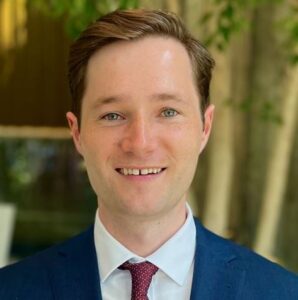
Thesis title: Addressing treatment decision-making variation in patients with locally advanced and recurrent rectal cancer
Topic: Decision-making and pelvic exenteration
Collaboration: Surgical Outcomes Research Centre (SOuRCe), Department of Colorectal Surgery at RPA, RPA Institute of Academic Surgery
Dr Brown is a general surgery registrar whose thesis focus will focus on addressing variation in treatment decision-making in patients with locally advanced or recurrent rectal cancer in Australia by: (i) Identifying optimal outcomes of surgery for locally advanced and recurrent rectal cancer; (ii) Developing an evidence-based surgical tool which predicts these outcomes, while incorporating the views of cancer specialists, patients and carers; (iii) Measuring effectiveness-implementation of the final surgical tool which will be used to inform best practice; and (iv) Implementing the tool to clinical practice and evaluating its effectiveness.
Publications arising from this thesis:
- Brown K, Solomon M, Ng KS, Sutton P, Koh C, White K, Steffens D; EviSurg Research Group. Development of a risk prediction tool for patients with locally advanced and recurrent rectal cancer undergoing pelvic exenteration: protocol for a mixed-methods study. BMJ Open. 2023 Aug 30;13(8):e075304. doi: 10.1136/bmjopen-2023-075304.
- Brown KGM, Solomon MJ, Heriot A, Frizelle F. Treatment of locally advanced and recurrent rectal cancer in Australia and New Zealand: recent progress and future challenges. ANZ J Surg. 2023 Oct;93(10):2291-2292. doi: 10.1111/ans.18635.
- Brown KGM, Pisaniello J, Ng KS, Solomon MJ, Sutton PA, Hatcher S, Steffens D. Variation in outcome measurement and reporting in studies of pelvic exenteration for locally advanced and recurrent rectal cancer: a systematic review. Colorectal Dis. 2024 Feb;26(2):272-280. doi: 10.1111/codi.16844.
Dr Schwe Phyo Han
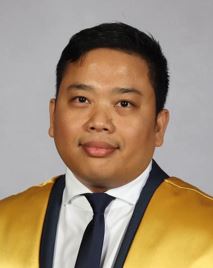
Thesis title: New era of diagnosis and treatment of liver and pancreatic tumours: Application with artificial intelligence innovation
Topic: Decision-making, liver surgery, pancreas surgery and artificial intelligence
Collaboration: Surgical Outcomes Research Centre (SOuRCe), Upper Gastrointestinal Department, Chris O’Brien Lifehouse
Dr Han is an upper gastrointestinal fellow at the Chris O’Brien Lifehouse whose thesis will focus on improving the efficiency and accuracy of surgeon and physician’s decision-making process with the diagnosis of tumour, differentiation from benign to malignant lesions, treatments planning and prediction of survival outcome after surgery. This will be achieved by: (i) Developing algorithms in making diagnosis of liver and pancreas tumour using triple phase CT scan of abdomen and pelvis; and (ii) Developing a model to accurately predict the outcome of the patient after surgery by using radiological, clinical and histopathological data.
Dr Elizabeth Connolly

Thesis title: A collaborative proteomics study to identify prognostic and predictive biomarkers of disease behaviour and therapeutic options in sarcoma
Topic: Retroperitoneal sarcoma, proteomics and patient outcomes
Collaboration: Surgical Outcomes Research Centre (SOuRCe), Orthopaedic Department, Medical Oncology Department, Chris O’Brien Lifehouse
Dr Connolly is a medical oncologist at Chris O’Brien Lifehouse whose thesis will focus on aiding in developing a better understanding of the basic biology of sarcomas and their disease causation and progression. The goal will be to develop specific therapies for each phenotype and aid in the stratification of patients for various treatment options. Three main outcomes will be pursued in this thesis: (i) Assist with identifying the optimal treatment that can be given without delay; (ii) Assist with guiding and focusing research to identify mechanisms amenable to the development of novel therapeutic strategies for phenotypes that are non- responsive to conventional treatments; and (iii) Assist in ensuring patients are informed of the likely outcome of their disease and expected quality of life.
Dr John Farey

Thesis title: The role of dual mobility total hip replacement in the management of femoral neck fractures in older patients: Reducing the risk of prosthetic dislocation
Topic: Neck of femur fractures, prostheses and hip arthroplasty
Collaboration: Surgical Outcomes Research Centre (SOuRCe), Orthopaedic Department, Australian Orthopaedic Association
Dr Farey is an orthopaedic surgery registrar whose thesis will focus on compare the effectiveness of dual mobility cup to conventional total hip arthroplasty for femoral neck fracture in reducing the risk of hip dislocation. This is being performed through a registry-nested cluster randomised trial which will also: (i) Compare the revision rates (for dislocation and for any reason) at one, two and five years post-operatively; (ii) Determine the cost-effectiveness of using DMC compared to conventional total hip arthroplasty in reducing the risk of hip dislocation in a hip fracture population; and (iii) Compare the mortality between groups at 30 days, 120 days, and then at one, two and five years post-operatively.
Ms Christina Stanislaus
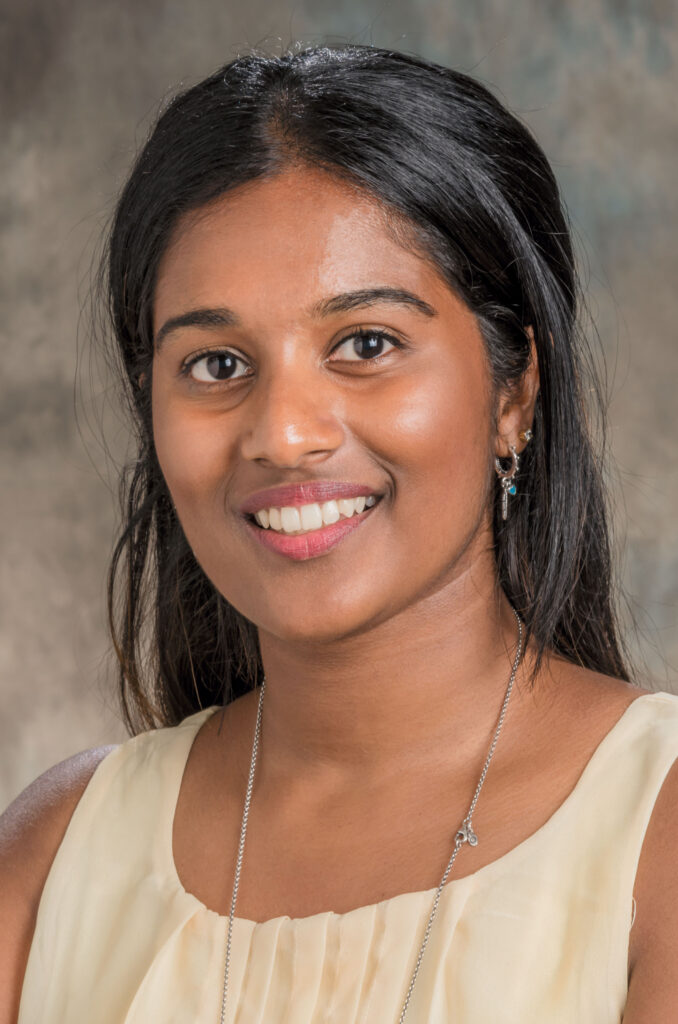
Thesis title: Communicate study: Using quantitative analysis to determine if providing culturally safe health practices can improve health service outcomes for First Nations people
Topic: Health Economics, Global and Tropical Health, Priority populations
Collaboration: Surgical Outcomes Research Centre (SOuRCe), Menzies School of Health Research, Charles Darwin university, SLHD Performance Unit
Ms Stanislaus is currently a Performance Analyst and Decision Support Officer with the Performance Monitoring, Systems Improvement and Innovation Unit with SLHD. She has previously worked as the Clinical Performance Manager and as the Robotics Research Officer all within SLHD. The research comprising this study will primarily be using quantitative methodologies, using large data sets to link and investigate hospital outcomes for First Nations patients. This will also evaluate the use of Aboriginal interpreters through the development of key performance indicators (KPIs), and determine the cost benefit of having an Aboriginal interpreter program within a public hospital. This study is Darwin based and there are plans to replicate this study locally.
Mr Zirong Bai

Thesis title: The role of prehabilitation and rehabilitation in frail patients undergoing major cancer surgery
Topic: Prehabilitation, Colorectal Surgery
Collaboration: Surgical Outcomes Research Centre (SOuRCe), Department of Colorectal Surgery at RPA
Mr Bai is an early career researcher whose thesis will explore the role of prehabilitation and rehabilitation with a focus on frail patients undergoing major cancer surgery by: (i) Reviewing the effectiveness of prehabilitation and rehabilitation in frail patients undergoing cancer surgery; (ii); Identifying barriers and facilitators to the uptake of prehabilitation and rehabilitation in these patients and their carers; (iii) Determining the association between preoperative physical, nutritional and psychological statuses with postoperative surgical outcomes in this population; (iv) Identifying the views of cancer specialists on the barrier and facilitators of a prehabilitation and rehabilitation virtual program; and (v) Investigating the feasibility and acceptability of a virtual program for frail patients undergoing major gastrointestinal cancer surgery.
Dr Hugh Giddings

Thesis title: Surgical outcomes in inflammatory bowel disease in Australia
Topic: Inflamatory Bowel Disease, Colorectal Surgery
Collaboration: Surgical Outcomes Research Centre (SOuRCe), Department of Colorectal Surgery at RPA
Dr Giddings is a colorectal surgery fellow and Notaras Scholar whose thesis will attempt to provide a comprehensive overview of the trends in Australian health service utilisation and post operative outcomes for ischaemic bowel disease surgery. This body of work will allow direct international comparison and facilitate benchmarking for Australian hospitals. This will be achieved by: (i) Reviewing the evidence regarding what factors influence outcomes of surgical treatment in inflammatory bowel disease; (ii) Investigating the trends in surgical recommendation and rate of colectomies for ulcerative colitis; (iii) Exploring the variation in outcomes of colectomies in ulcerative colitis; and (iv) Investigating how the reconstruction rates following total proctocolectomy for ulcerative colitis have changed over time.
Publications arising from this thesis:
- Giddings HL, Ng KS, Solomon MJ, Steffens D, Van Buskirk J, Young J. Reducing rate of total colectomies for ulcerative colitis but higher morbidity in the biologic era: an 18-year linked data study from New South Wales Australia. ANZ J Surg. 2023 Dec;93(12):2928-2938. doi: 10.1111/ans.18713.
- Giddings HL, Ng KS, Solomon MJ, Steffens D, Van Buskirk J, Young J. Population outcomes, trends and the future of pouch surgery for ulcerative colitis: a 19-year New South Wales data linkage study. ANZ J Surg. 2023 Nov;93(11):2686-2696. doi: 10.1111/ans.18588.
Master of Philosophy (MPhil)
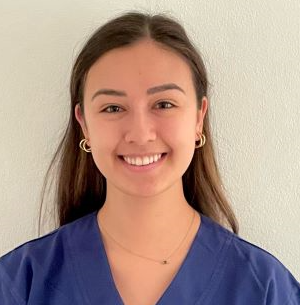
Dr Celine Garrett
Thesis title: Early onset colorectal cancer epidemiology surgical outcomes survival and quality of life after surgery

Dr Nikeith John
Thesis title: Artificial intelligence in cochlear implantation outcomes

Dr Peter Lee
Thesis title: Retroperitoneal sarcoma clinical outcomes at RPA and systematic review

Dr Michael Lee
Thesis title: A synthetic nanopetide based gel for haemostasis synechiae prevention and enhanced wound healing in nasal surgery

Dr Naomi Niles
Thesis title: Patient preferences for auricular reconstruction and hearing habilitation in microtia

Dr Saissan Rajendran
Thesis title: Vascular reconstruction with major pelvic and retroperitoneal malignancy resection

Dr Jacob Walker
Thesis title: Outcomes following pelvic exenteration with sacrectomy for recurrent rectal cancer

Dr Kamil Jakub Wegrecki
Thesis title: Applying machine learning technology to the study of Meniere’s disease in Australia

Dr Elinor Tan
Thesis title: Retrospective analyses on perioperative outcomes of elderly patients undergoing surgical resection for upper gastrointestinal tumours

Dr Belinda Errington
Thesis title: SNS effect on colonic transit

Mr Nehamias de la Cruz
Thesis title: Patient-reported importance of pre-operative education regarding post-operative erectile function in men undergoing pelvic exenteration surgery
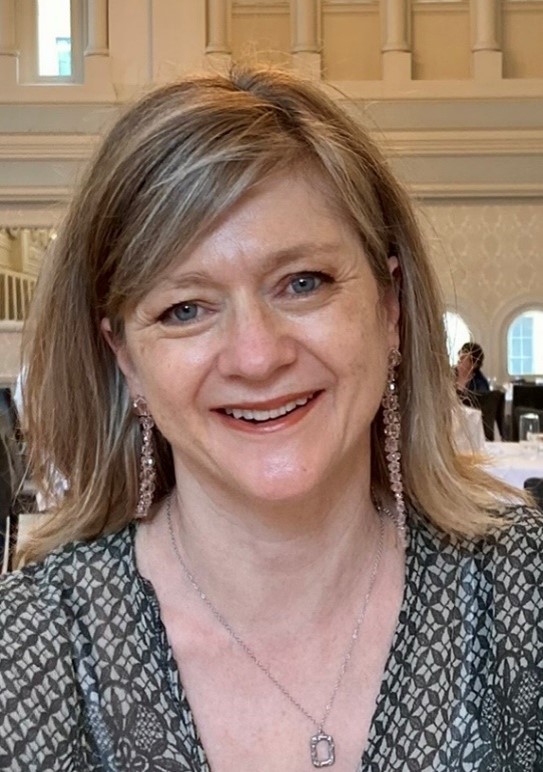
Dr Charlotte Johnstone
Thesis title: The management of pain for patients undergoing pelvic exenteration surgery

Mr Nicholas Hirst
Thesis title: Psychological interventions in prehabilitation for patients undergoing cancer surgery
Doctor of Medicine (MD)

Mr Daniel Kasunic
Project title: Outcomes of varicocele embolisation at Royal Prince Alfred Hospital: A systematic review
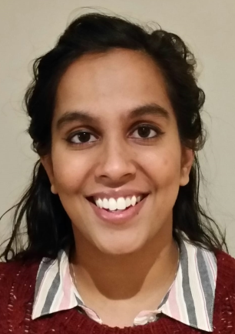
Ms Nishka Pinto
Project title: Cohort study: Neoadjuvant + adjuvant therapy in CRS+HIPEC
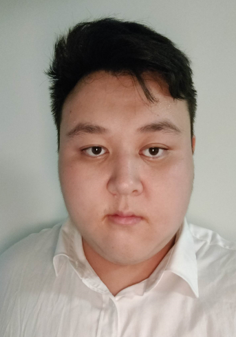
Mr Song Kang
Project title: Cohort study: MRI as a predictor of SVI (ROSE Study) – Investigating predictors of seminal vesical invasion (SVI)

Mr Mitchell Crebert
Project title: Patient Reported Outcomes in Megaprostheses for Non-oncological indications (Systematic review)

Mr Tian You Chen
Project title: Cohort Study: Prolonged length of stay in UGI + systematic review
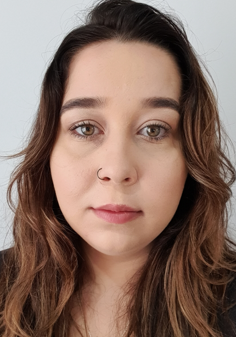
Ms Alexandria Petridis
Project title: Scoping Review: Online preoperative screening tools to identify high-risk patients that would benefit from targeted preoperative intervention + protocol formation

Ms Sarah Cook
Project title: Systematic Review: The fragility of statistically significant findings from randomized control trials of prehabilitation prior to surgery
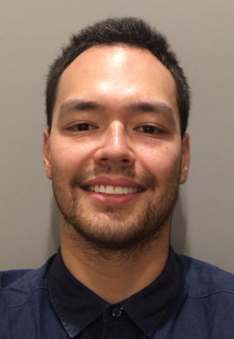
Mr Bernard Le
Project title: Cohort study: Pleural effusion in diaphragmatic stripping with full thickness resection
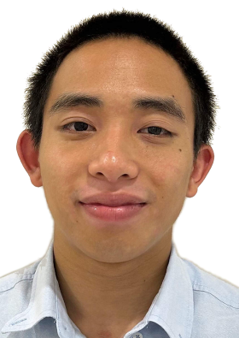
Mr Aidan Chow
Project title: Cohort study: Decision regret and quality of life following prostate cancer surgery

Mr Gerald Tjahyadi
Project title: Cohort study: The environmental impact of robotic surgery observational study
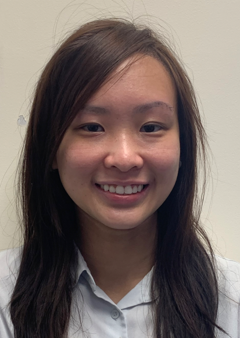
Ms Jennifer Vu
Project title: Cohort study: Patient and carer views on Prehabilitation
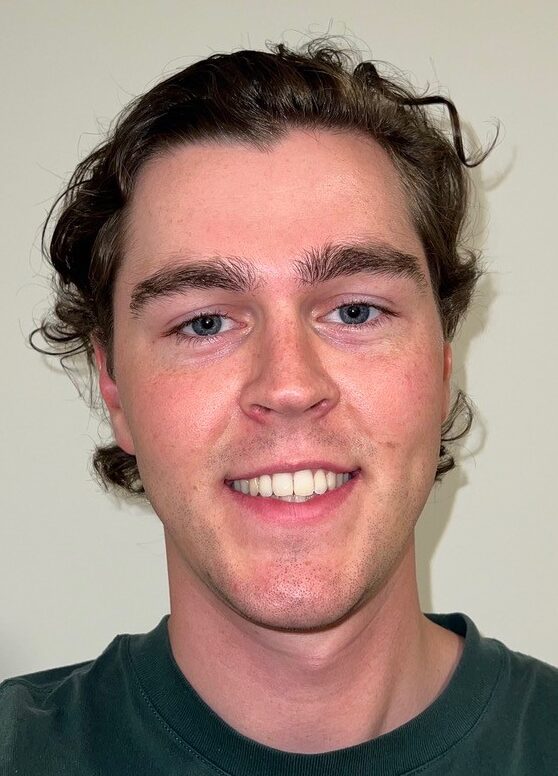
Mr Patrick Campbell
Project title: Cohort Study: Association between preoperative physical activity and surgical outcome
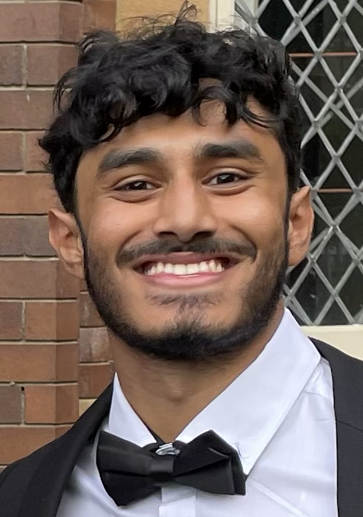
Mr Mukund Karthik
Project title: Cohort Study: Impact of preoperative fraility and sarcopenia measurements on postoperative outcomes in pancreatic adenocarcinoma

